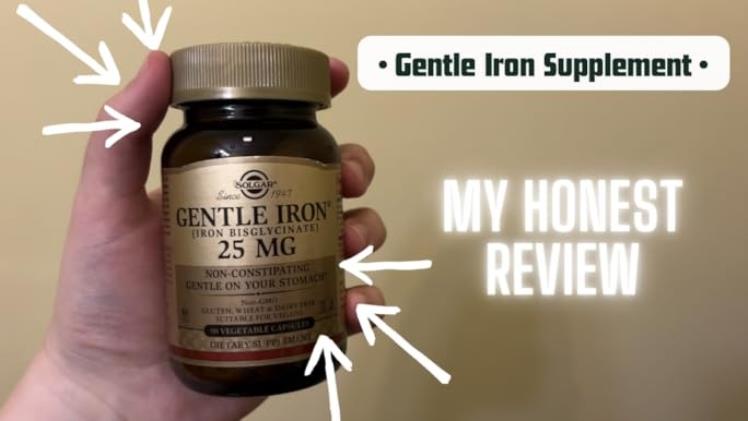Iron is a vital mineral that plays a crucial role in transporting oxygen in the blood and supporting various bodily functions. For individuals with iron deficiency or anemia, iron supplements are often essential. However, a common side effect of traditional iron supplements is constipation, prompting many to look for non-constipating alternatives. This article delves into the significance of iron, the reasons behind supplement-induced constipation, and how to select iron supplements that are gentle on the stomach.
The Importance of Iron
Iron is essential for the production of hemoglobin, the protein in red blood cells that transports oxygen from the lungs to the rest of the body. Sufficient iron levels ensure that tissues receive the oxygen they need to function effectively. Additionally, iron plays a vital role in energy production, immune system support, and cognitive function. Iron deficiency is one of the most prevalent nutritional deficiencies globally, often resulting in anemia, which is marked by fatigue, weakness, and compromised immune function. For those diagnosed with iron deficiency anemia, it is crucial to increase iron intake through diet or supplements.
Understanding Iron Supplementation and Constipation
Traditional iron supplements like ferrous sulfate are effective at replenishing iron stores but often come with undesirable gastrointestinal side effects such as constipation, nausea, and stomach cramps. These issues arise primarily due to the supplements’ poor absorption rate, which leaves excess iron in the digestive tract, causing irritation and disrupting normal bowel movements. Constipation occurs because the unabsorbed iron alters the gut microbiota and slows down intestinal motility. For those already prone to digestive issues, this can be particularly troublesome, discouraging consistent supplement use and impeding effective treatment of iron deficiency.
Choosing Non Constipating Iron Supplements
When selecting an iron supplement that doesn’t cause constipation, consider the following factors:
1. Form of Iron
Different forms of iron vary in their absorption rates and gastrointestinal side effects. Ferrous bisglycinate and heme iron polypeptide are two forms that are often better tolerated than traditional ferrous sulfate.
- Ferrous Bisglycinate: This form of iron is chelated, meaning it’s bound to amino acids, which enhances absorption and reduces gastrointestinal side effects. The chelation process helps the iron pass through the digestive system more smoothly, minimizing irritation and constipation.
- Heme Iron Polypeptide: Derived from animal sources, heme iron is more efficiently absorbed by the body compared to non-heme iron found in plant-based sources. Heme iron supplements are often recommended for their high bioavailability and minimal gastrointestinal discomfort.
2. Dosage and Timing
The dosage and timing of iron supplementation can significantly impact its side effects. Lower doses of iron taken multiple times a day, rather than a single large dose, can improve absorption and reduce constipation. Additionally, taking iron supplements with meals, rather than on an empty stomach, can help mitigate gastrointestinal discomfort.
3. Additives and Fillers
Some iron supplements contain additives and fillers that can exacerbate constipation. Choosing a supplement with minimal or no additives can help reduce the likelihood of gastrointestinal issues. Look for products that are free from artificial colors, preservatives, and common allergens.
4. Additional Nutrients
Certain nutrients can enhance iron absorption and reduce side effects. Vitamin C, for example, significantly improves iron absorption and can be taken alongside iron supplements to boost efficacy. Some iron supplements come combined with vitamin C or other supportive nutrients like folic acid, which can aid in overall nutrient uptake and minimize constipation.
Dietary Considerations to Enhance Iron Absorption
In addition to choosing a non constipating iron supplement, dietary strategies can enhance iron absorption and support digestive health:
1. Pair Iron with Vitamin C-Rich Foods
Consuming iron supplements with vitamin C-rich foods, such as citrus fruits, tomatoes, and bell peppers, can significantly increase iron absorption. Vitamin C helps convert iron into a form that is more readily absorbed by the body.
2. Avoid Calcium-Rich Foods and Beverages Around Supplement Time
Calcium can inhibit iron absorption, so it’s advisable to avoid consuming calcium-rich foods and beverages, like dairy products, around the time of taking iron supplements. This ensures that iron absorption is maximized.
3. Include Fiber-Rich Foods in Your Diet
A diet high in fiber can help prevent constipation. Incorporating whole grains, fruits, vegetables, and legumes into your meals supports healthy digestion and regular bowel movements.
Monitoring and Adjusting Supplement Use
Regular blood tests to monitor iron levels are crucial for ensuring the effectiveness of iron supplementation and adjusting dosages as needed. Collaborating with a healthcare provider can help create a tailored supplementation plan that minimizes side effects while effectively treating iron deficiency. Paying attention to your body’s responses and making necessary adjustments—such as changing the form of iron supplement or modifying the dosage—can help maintain a balance between achieving adequate iron levels and preserving digestive comfort.
Conclusion
Iron supplements are crucial for individuals with iron deficiency, yet the side effect of constipation can be a significant hurdle. Opting for non-constipating options like ferrous bisglycinate or heme iron polypeptide, paying close attention to dosage and timing, and incorporating supportive dietary strategies can make supplementation more tolerable and effective. Selecting the right iron supplement that is gentle on your stomach can enhance compliance and improve overall health outcomes. Consult with a healthcare professional to determine the best approach for your unique needs, ensuring you achieve optimal iron levels without the discomfort of constipation.






